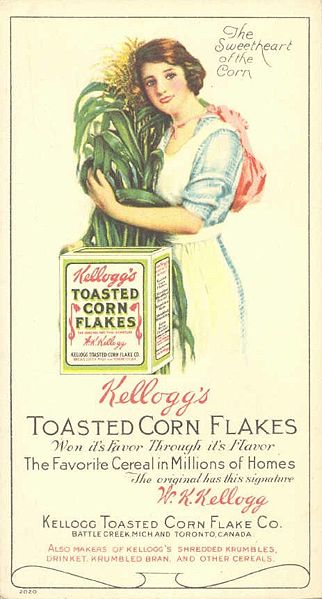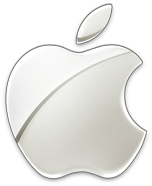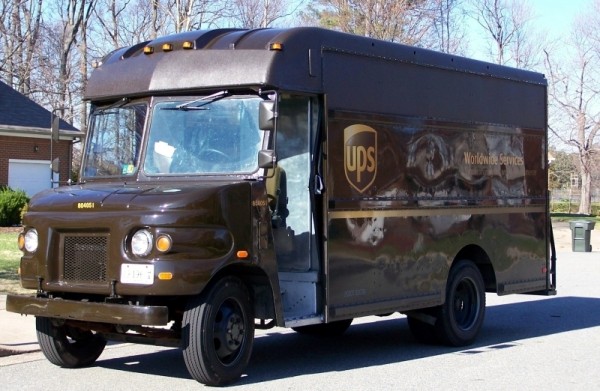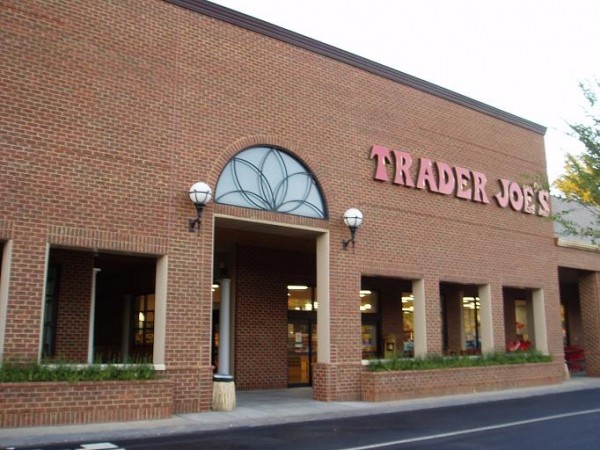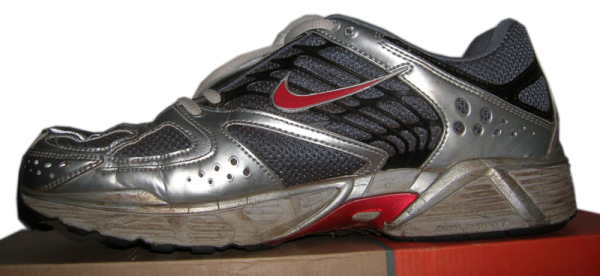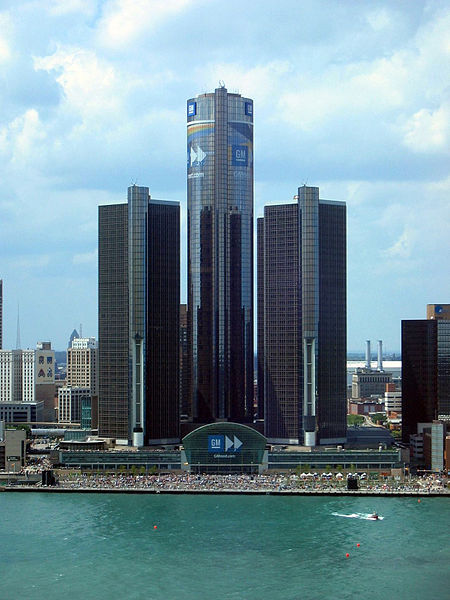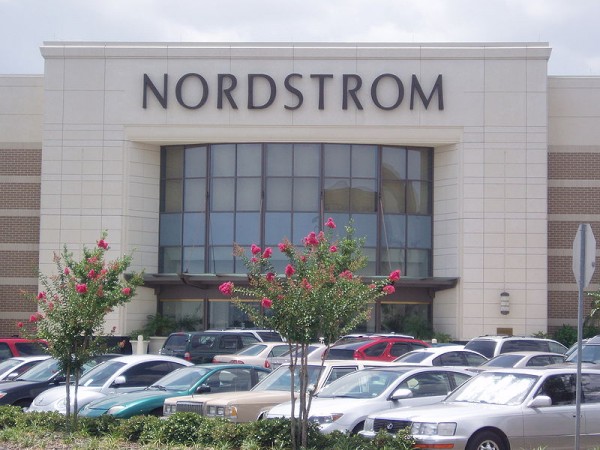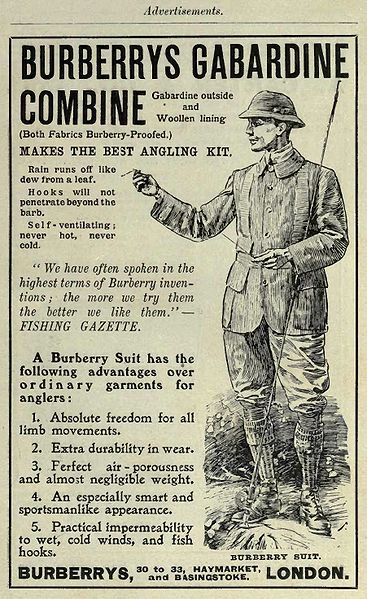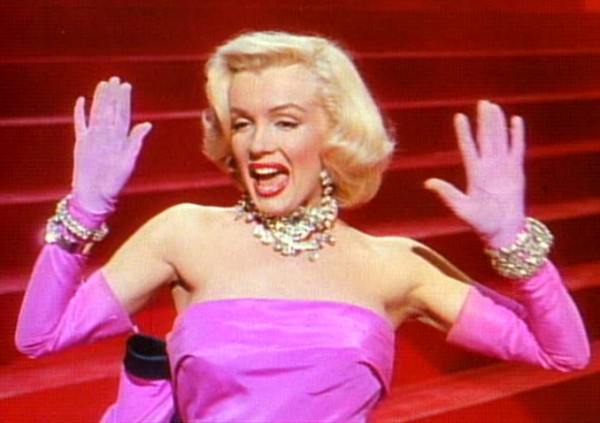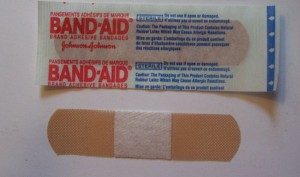
Image: Valerie Everett/Flickr
What makes you trust someone? For one, they do what they say they’re going to do. They help you out when you need it most. They don’t do anything to make you distrust them, like charge you for borrowing their DVDs or stealing your stuff.
Trusting brands works the same way. When you buy something associated with a brand, you know the product isn’t going to, say, poison you or disintegrate in your hands. If you do have a problem with something that company provided, you know you can tell a real person about it and they’ll do something about the problem. You can rely on your brand the same way you do the people in your life that you trust.
Perhaps companies have to try harder to be trustworthy than people, though. Many on this list built their strategy around the customer experience. Some have made quality products for a long time. Those products, in turn, either soothe customer anxiety or create an experience that customers crave. Customers know what to expect when they’re dealing with the brands on this list.
Who are these stellar brands, and why do we trust them so much? Here’s a list of the 25 most trustworthy brands in America.
(Note: These were chosen to represent a sample across industries.)
25. WebMD
If you have a health issue, your overpriced MD probably isn’t your first line of defense anymore. The Internet is. WebMD lets you can look up any symptom under the sun, as well as tips for your general health and nutrition, and educates you on health issues you’ve never heard of. An attractive, intuitive layout and expert-written blog don’t hurt, either. On a more subtle level, any good, complete website that soothes your need for information when you’re panicky and desperate, as we often are during health scares, is bound to engender a positive, trustworthy association.
24. Kellogg’s
Who can argue with Corn Flakes or Cheez-Its? Many consumers default to Kellogg’s cereals and snack foods because they’ve grown up with them and they taste good. The company’s natural and frozen products have also nudged their way into consumer’s loyal hearts, and are a staple at most grocery stores. Aside from a packaging snafu in 2010 that made several of their cereals taste soapy, Kellogg’s has consistently produced products with a good taste and texture. Some are a far cry from actually being healthy, but if anything, that makes people even more loyal to the cereal giant.
23. FedEx

Image: coolcaesar/Wikimedia
Shipping companies are lucky. What better way to foster trust with consumers than delivering something that’s precious to them, quickly, safely and on time? Having the US Post Office, which many people see as sluggish or unreliable, as your main competitor also helps. If you FedEx something, it will almost always arrive at its destination on time and secure. In the rare instances a problem does crop up, FedEx is generally accountable and helpful–another one-up on the postal service. By virtue of doing what it does well, FedEx is one of the most trusted brands around.
22. Apple
A personable front man and general high quality of products and services endear Apple to millions of repeat buyers. The company has several things going for it in terms of generating both trust and excitement. Apple’s computing devices are sleek to the touch, sexy, intuitive, and smart, kind of like what you’d want in a date. The Apple Store staff are helpful and competent. Steve Jobs is arguably the best innovator of the past 20 years. Even though some of Apple’s policies are hard to work with, most Apple consumers don’t get the sense they’re waiting to pilfer your money at every turn. To boot, Apple has set industry standards for tablets, smartphones, high-powered computers, and laptops. No wonder everyone keeps coming back for more.
21. Adobe Systems

Image: Coolcaesar/Wikimedia
From Flash to Dreamweaver, Photoshop to Illustrator, creative computer types can’t live without Adobe’s software. Fortunately, because they’re industry standards, Adobe’s products are reliable and fast (unless you ask Steve Jobs about Flash). And aside from a minor overseas pricing scandal, the company stands out as a software provider you can trust. When you don’t have many products to use as alternatives, this is a good thing.
20. Target
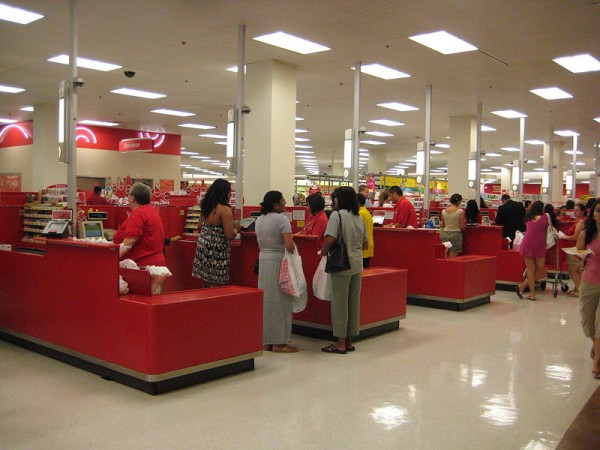
Image: Marlith/Wikimedia
It’s safe to assume you’ll get a good deal on most of things you buy at Target, be they fashion jeans or garden tools; that alone makes consumers trust the brand. But Target goes a step further than, say, your local dollar store. It does so by providing trendy clothes, accessories, and home decor at its superstores, making them a one-stop shop for both mundane things like orange juice and the latest pair of 1980’s aviator sunglasses. This unique strategy sets Target apart from other big discount stores, and has the effect of creating loyal customers. Moreover, unlike superstore rival Walmart, Target doesn’t have that bad-rap monkey on its back, making shoppers perceive it as nicer and more trustworthy.
19. Southwest Airlines
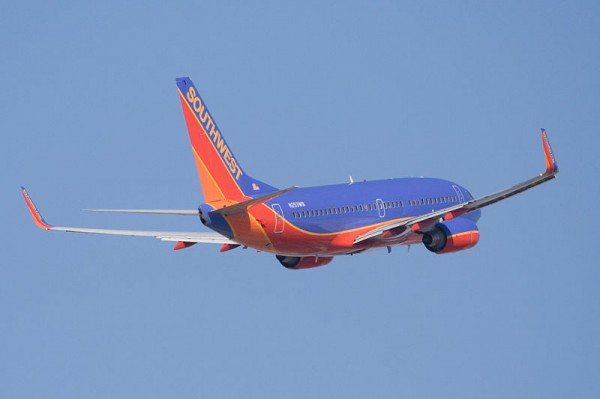
Image: Dylan Ashe/Wikimedia
Provide good service in an industry notoriously lacking it, and you have yourself almost instant loyalty. Southwest, unlike most other airlines, also lets you check a back for free, and offer one of the industry’s best rebooking policies–no fees, just pay the price difference and use credits within a year. That excellent treatment of customers makes it easier to overlook snafus like pieces blowing off a jet while it’s in flight, or the airline ignoring mandates to fix its planes. Note to other airlines: When you build a lot of brand equity, your inevitable mistakes (and, sadly, crashes) are easier to forget.
18. Amazon

Image: James Duncan Davidson/Wikimedia
Go online. Buy a book or one of a million other items. Get item sent to your door, pronto. Return if necessary (but probably not). This is Amazon, and it has become a classic part of the American experience. From the reliable service to the smile on the box, Amazon is the go-to ecommerce classic for millions of people. On a primitive level, ordering something from a screen and knowing it will appear at your doorway in a predictable number of days is a little bit like magic. Consumers trust Amazon to deliver that magic. It does, and we start to rely on it. That reliance and familiarity breeds trust. Perks like the Kindle, seller accounts, and streaming movies don’t hurt, either.
17. Honda

Image: motoracereports/Wikimedia
Toyota used to boast epic customer trust, but last year’s recalls ensured that it is no longer the trustworthy Japanese brand of choice, at least for the time being. Honda, on the other hand, spells reliability for many consumers. You don’t buy a Honda expecting it to break down, at least not for a whie. When it doesn’t–most don’t–you start to associate the brand with reliable cars that run forever. This is the promise of Honda’s stylized “H.” The fact that early-1990s Civics are still the country’s most stolen cars attests to the brand’s enduring value.
The carmaker’s base of small, fuel-efficient cars also lined up well with recessionary consumers’ needs, and ensured it didn’t see the kinds of steep losses that many of its competitors did. Even with Japan’s nuclear disaster denting Honda production, the brand’s perceived value, and the extent to which consumers trust it, will endure.
16. Colgate-Palmolive
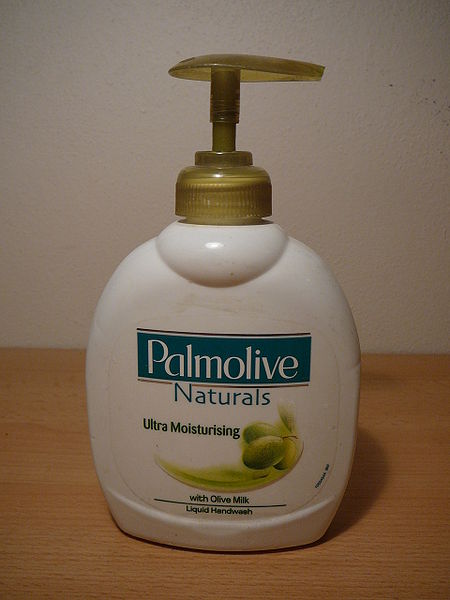
Image: Pavel Savela/Wikimedia
Colgate-Palmolive’s name alone invokes images of two things you probably use, Colgate toothpaste and Palmolive dish soap. There’s something about everyday products that engenders trust, perhaps a combination of familiarity and the fact that they help you accomplish basic needs. Case in point: Washing hands and brushing teeth. Unless a runny gray sludge comes out of your toothpaste tube when you first open it, chances are, you trust the brand. Colgate-Palmolive has its work cut out for it.
The corporate giant owns a number of other brands, most of which you probably trust. They include Ajax, Handi Wipes, Irish Spring, Softsoap, Teen Spirit, and Tom’s of Maine. CP’s success may rely more on its ubiquitous, decent products than on a stellar service model, but the fact that its items are so ingrained into our daily lives makes us trust them implicitly.
15. Chipotle
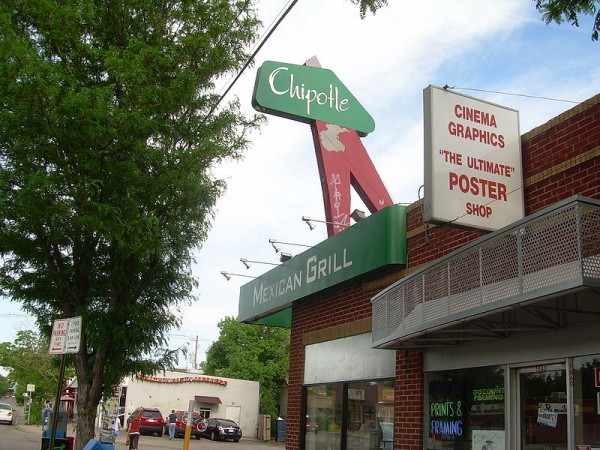
Image: CW221/Wikimedia
Although this brand belongs to McDonald’s, it never movies made about how it simultaneously fattens, cheats and overworks people. Perhaps that’s because fresh-Mex brand Chipotle doesn’t actually do these things. Indeed, the custom burrito maker is about as transparent as it gets. The menu tells you about the purity of its meats, and when you order, you name the ingredients you want and watch an employee spackle them into a tortilla for you. The customization of that process, combined with the visibility and clarity of ingredients, makes Chipotle a place where you know exactly what you’re going to get (aside from the apparently sodium-laden ingredients that you don’t actually see).
While Chipotle isn’t the only restaurant to employ this kind of model–the burger joint In N’ Out has simple, delicious burgers and malts down to a science–its widespread success and numerous copycats indicate that the transparency-for-trust model truly works. (Low prices and fast service don’t hurt, either.)
14. UPS
Just like FedEx, this brown-clad service guarantees that it will deliver your stuff anywhere, quickly and securely. It’s hard to miss a brown UPS truck as it plies surface streets for its destination, and the brown uniforms of employees only mean one thing, that your package is arriving. You know you can trust these guys to transport just about anything you need, and that, as mentioned for FedEx, is an instant harbinger of trust.
13. Starbucks
When you ‘get a Starbucks’, you always know what to expect, in terms of layout and service, flavor and drink sizes. While the company keeps coming up with new products to innovate itself out of its midlife slump, the fundamentals of Starbucks remain reliable. Go in, grab a latte/frappe/frappuccino, and feel better. Bottom line, it works.
12. Mercedes Benz
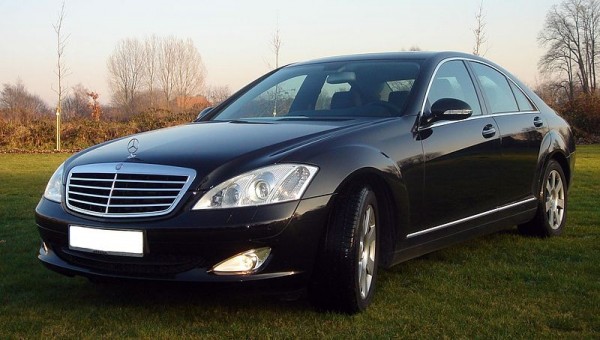
Image: Fadi/Wikimedia
Age generates brand equity and trust, especially if you can survive the aging process intact. Mercedes Benz, one of the world’s first car manufacturers, has done just that, and is still receiving handsome dividends. Thanks to more than a century of quality cars, you always know a Benz will be comfortable, fast and safe. Heck, they invented crumple zones.
For decades, the German car has also acted as a mark of class, reflecting taste and wealth. A Mercedes is also generally known for its mechanical soundness, though depending on year and model, that case can be disputed. All in all, it’s been a trusted and classy brand for years, with a solid reputation. Consumers buy them expecting a certain level of quality, and the brand generally delivers.
11. Costco
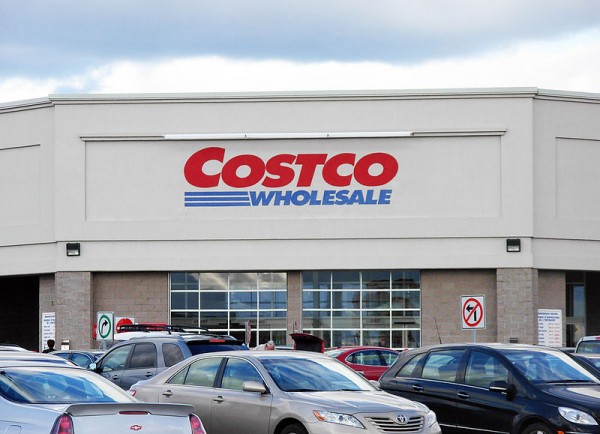
Image: Stu Pendousmat/Wikimedia
Costco, with its big boxes, reasonable prices, and stacks of stuff, invokes a primitive hunter-gatherer instinct in shoppers. (The samples help too.) You can always count on the deals, not to mention the hot dogs and pizza. Moreover, service is generally pretty good, and you don’t get attitude from checkout people the way you do at many other big stores. The backstory here is that Costco pays and treats their employees well; that attitude carries over to consumers’ shopping experience. Costco, in its membership-club wisdom, hasn’t changed its model much over the years, only its name. This further augments the familiarity-breeds-trust idea, spanning it across generations of Costco shoppers.
10. Canon
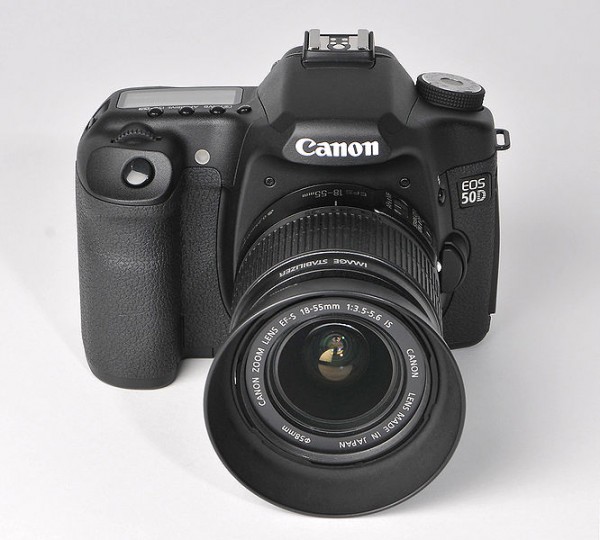
Image: Thomas Wolf/Wikimedia
Good products, established name, old, innovative company. Canon, a Japanese imaging products company, fits the “Trust Me” formula well. From high-end photography equipment to consumer video cameras that will fit in your palm, the company’s products permeate a long vertical. Consumers rightly equate the name with quality, and continue to buy at all levels.
9. Trader Joe’s
Good food at good prices and two-buck Chuck—how can you go wrong? Health-oriented customers love Trader Joe’s for its low-price, high-quality produce, cheese, grab-n-go lunches, bread, and a host of other tasty items. That’s not to mention its excellent wine selection, also friendly on the pocketbook. TJ’s offers the personality and product selection of a high-end grocer without insane prices. It keeps loyal customers coming again and again, and would-be shoppers in states lacking a TJ’s (Colorado. Cough.) begging for the chain to arrive.
8. Nike
This innovative sneaker company has flaunted star athletes and cutting-edge products since its early days in the 1960’s. If you buy a pair of Nikes, you’re pretty much guaranteed to leave the store with a comfortable and functional, if not trendsetting, pair of athletic shoes. Even after 47 years, the Nike logo, one of the most reliable around, is still a status brand around the world. Nike’s star power and deeply established brand make it one of the most familiar and trusted brands in sports.
7. Marriott
The hotel giant’s brand is built on consistency. The company prides itself on good service, predictably clean and comfortable rooms, and the loyalty of its guests. Although CEO Bill Marriott expressed concern about his chain not being up to the current generation’s standards of hipness back in 2005, the Great Recession, which made consumers re-focus on quality for value, may have changed all that anyway.
6. Nordstrom
Nordstrom boasts the latest fashions, as well as the personal shoppers and friendly assistants to help you find your perfect fit. That customer service-meets-fashion approach is why people keep on coming as though the retail slump never happened. While Nordy’s has some serious designer duds, it isn’t exclusive or across-the-board unaffordable, so it appeals to mainstream shoppers as well as the Nieman Marcus crowd.
5. Campbell’s
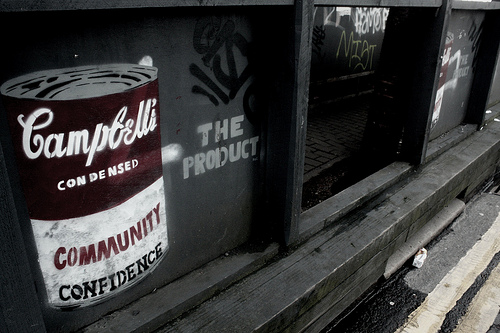
Image: H. Gordon/Flickr
Campbell’s has been around since 1869. Most of us started eating it as kids, when its chicken soup made us feel better when we were sick. Talk about powerful product association–and instant trust. In the seven or so generations it’s been around, the company hasn’t change its branding or core product line much, so you always know what you’re going to get when you buy a can of their soup. Aside from last year’s Spaghettios recall4. Burberry
Few fashion brands stand apart based on tartan and a trench coat, but Britain’s Burberry has pulled this off with its trademarked patterns, making it identifiable on fashionistas even when you can’t read the label. Founded by a Hampshire tailor in 1856, the brand has undergone several identities, from apparel worn by the outdoor crowd to the insignia of working-class teens to its current manifestation as a luxury status symbol. But you still always recognize that tartan as a symbol of a darned good product.
3. Tiffany & Co.
Tiffany diamonds never lose their luster. When Marylin Monroe mentioned the company in her song “Diamonds are a Girl’s Best Friend” in 1953’s Gentlemen Prefer Blondes, she could still have been singing for women today. Even with a wallet-busting recession playing in the background, women all over the country are hungry for Tiffany’s high-end products. They’re trendy and high-quality, but the brand’s rich history is what really roots it in consumers’ hearts, whether they know it or not.
Tiffany has been around since 1837. It created swords for Union soldiers, the New York Yankees’ logo, various United States medals of honors, as well the first jewelry catalogue in the country. No jewelry store has been celebrated as much as Tiffany has in movies, songs, Broadway shows, sitcoms, and the media in general. Tiffany isn’t just a matter of trust. It’s a collective love affair.
2. Johnson & Johnson
Even though it’s a member of the much-maligned Big Pharma consortium, Johnson & Johnson is an exception to the “Pharma does bad things” reputation blight. How can you hate the company the makes Band-Aids for your owies or baby shampoo for your little one? They also produce the much-loved Neutrogena brand, as well as Tylenol, which has admittedly been hit by a musty rap of late. Still, J&J’s large suite of products include enough beloved, essential brands that the company’s name remains a stalwart of good medicine.
1. Coca Cola
The taste of Coke probably hasn’t changed much since you were a kid. Elders might recall the drink’s cocaine days, but Coca Cola has at least two generations of just plain Coke addicts under its belt, and it’s cultivating more as we speak. The logo hasn’t changed much over the years, the core product selection is the same, and most people grew up drinking the company’s trademark brew. Indeed, most of us experience times when we need a Coke. We trust the brand so much that many of us depend on it.

